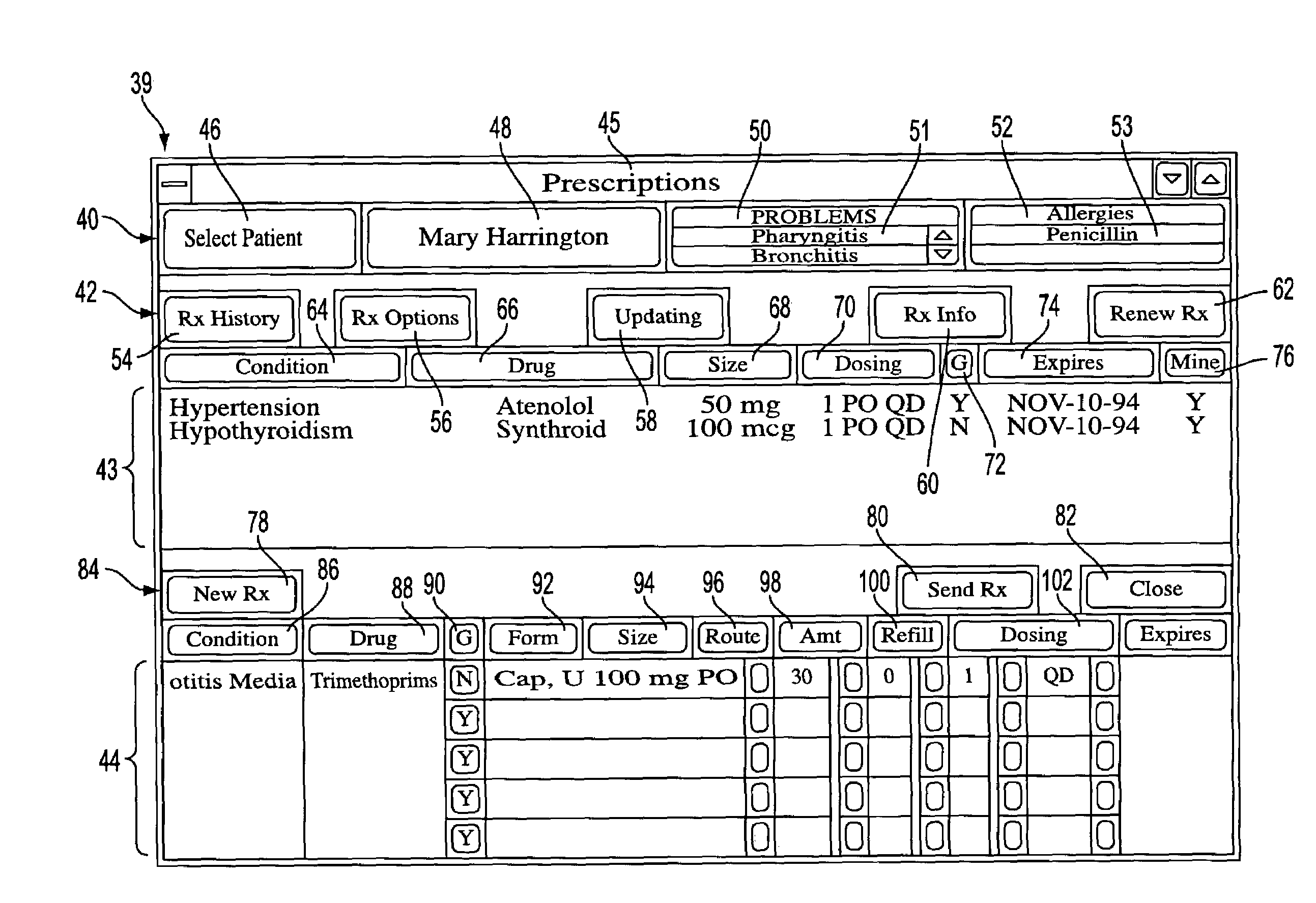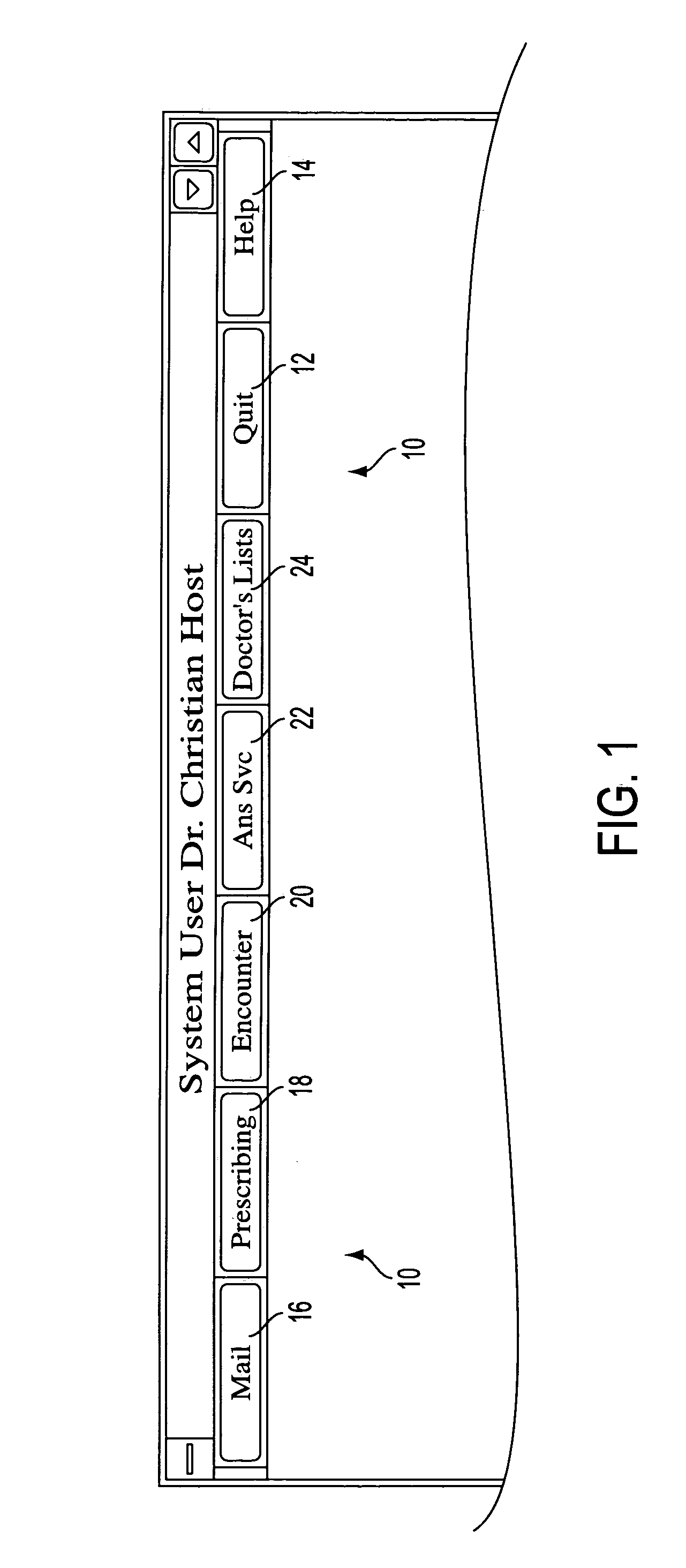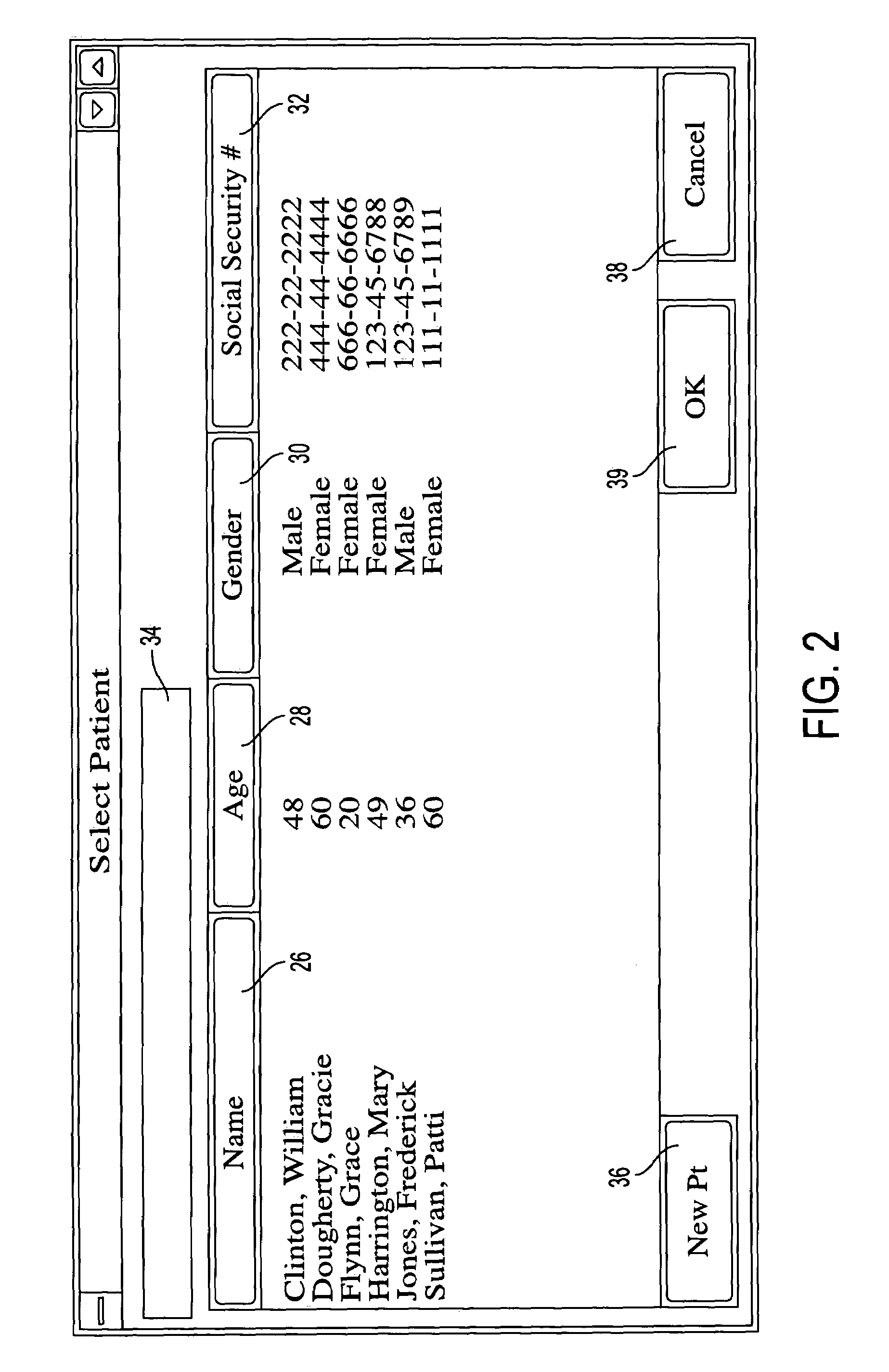Computerized prescription system for gathering and presenting information relating to pharmaceuticals
a computerized and prescription system technology, applied in the field of professional data management systems, can solve the problems of inability to obtain adequate, reliable drug information and relevant patient information, inability to create a new prescription, inability to provide information regarding relevant new drugs, and inability to obtain information regarding relative costs, etc., to achieve the effect of convenient solution
- Summary
- Abstract
- Description
- Claims
- Application Information
AI Technical Summary
Benefits of technology
Problems solved by technology
Method used
Image
Examples
Embodiment Construction
Overview
[0068]The prescription management system illustrated in FIGS. 1-14 can be provided in software for single-user operation on a stand-alone personal computer for use, for example, by a sole practitioner or for multi-user operation on a local area network for use, for example, by physicians and other prescribers within a single facility, hospital, group practice, or the like prescribing organization, and the invention can bring substantial benefits to such users and their patients.
[0069]However, more significant benefits can accrue to patients, physicians, drug benefit providers and the public at large by implementation of the described prescription management system on a regional or nation-wide basis. To this end, a preferred embodiment of prescription management system comprises a host computer facility supporting wired or wireless network delivery of user-relevant components of said prescription management system to multiple remote user interface devices.
[0070]The host compu...
PUM
 Login to View More
Login to View More Abstract
Description
Claims
Application Information
 Login to View More
Login to View More - R&D
- Intellectual Property
- Life Sciences
- Materials
- Tech Scout
- Unparalleled Data Quality
- Higher Quality Content
- 60% Fewer Hallucinations
Browse by: Latest US Patents, China's latest patents, Technical Efficacy Thesaurus, Application Domain, Technology Topic, Popular Technical Reports.
© 2025 PatSnap. All rights reserved.Legal|Privacy policy|Modern Slavery Act Transparency Statement|Sitemap|About US| Contact US: help@patsnap.com



